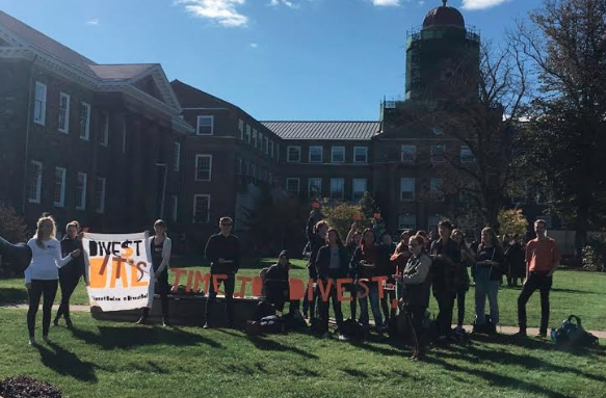Laval got the headlines, but it turns out Halifax’s smallest university was actually the first in Canada to divest from fossil fuels.
The Atlantic School of Theology made the historic decision more than a year ago. The Anglican Diocese of Nova Scotia and PEI—which controls the school’s investments—quietly passed the resolution at a diocesan council meeting last October.
The unexpected news was announced by student group Divest Dal at Dalhousie University’s board of governors meeting Tuesday.
“We look at that university that has divested for inspiration, and we’re planning to push this issue back
According to AST president Neale Bennet, the university will make no new investments in fossil fuels and committed to divest its remaining fossil fuel investments over the course of the past year.
Canadian universities have faced mounting pressure in recent years from students and climate change advocates to remove any shares in fossil fuel companies from their investment portfolios. But despite the examples set by Laval and—it turns out—AST, no other Canadian schools have voted in favour of divestment. Divest Dal successfully brought a vote on the idea to its board of governors in 2014, but the motion was shot down.
The group is now hoping AST’s actions will serve as an inspiration for other Nova Scotian universities to follow.
“It’s a moral issue and it’s important to take leadership,” says Greenland Smith. “We obviously think that it’s really inspirational because that means there is a university on the peninsula that has taken this step and has positioned themselves to be on the right side of history.”
The group is asking the university to extricate itself from any dealings with the Carbon Underground 200: A list of the top coal, oil and gas companies in the world. It’s a moral obligation, says Greenland-Smith.
“When we see the university have an investment policy that is not in step with the best interest of the students that it serves, then it’s our position that we should take a stand.”

